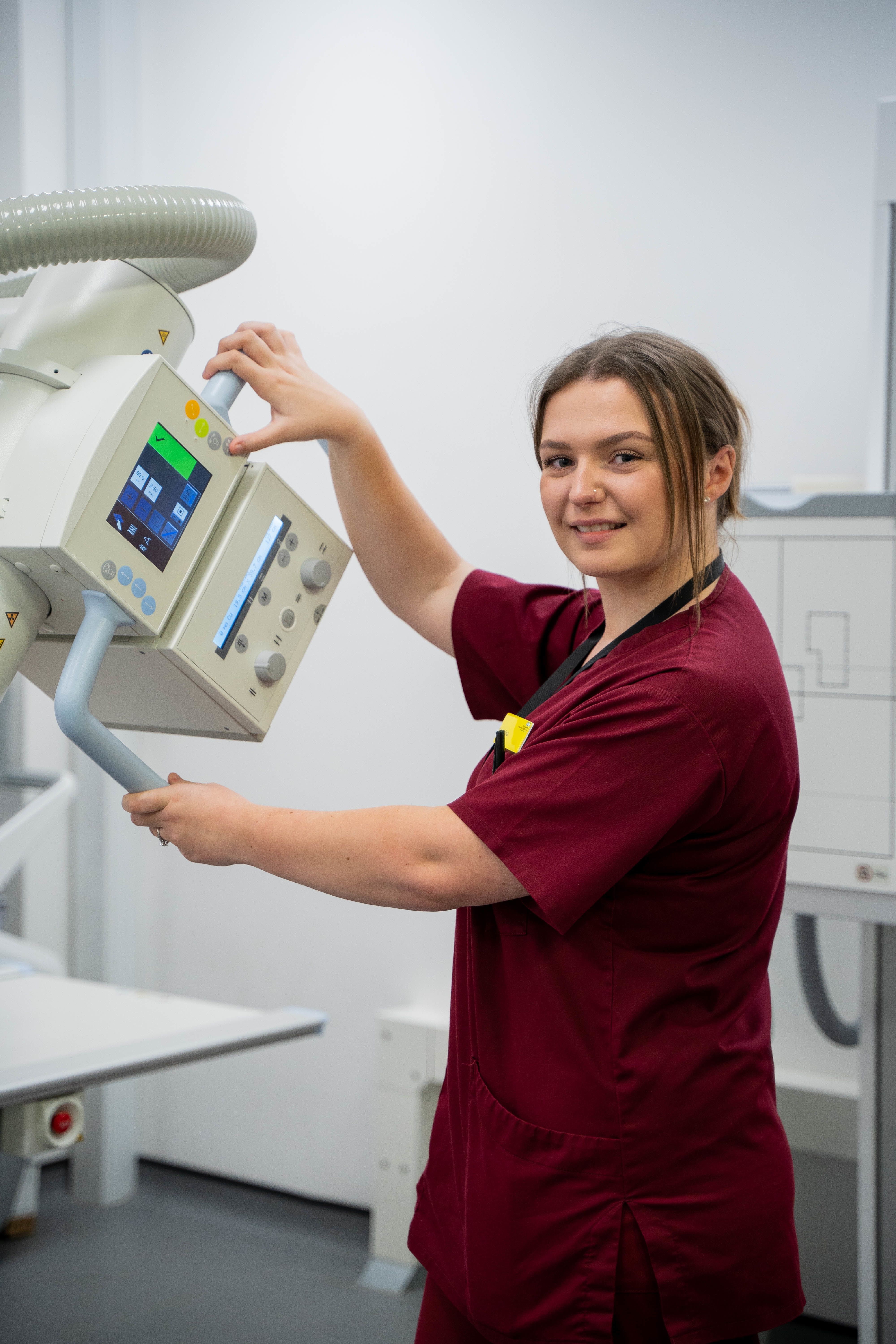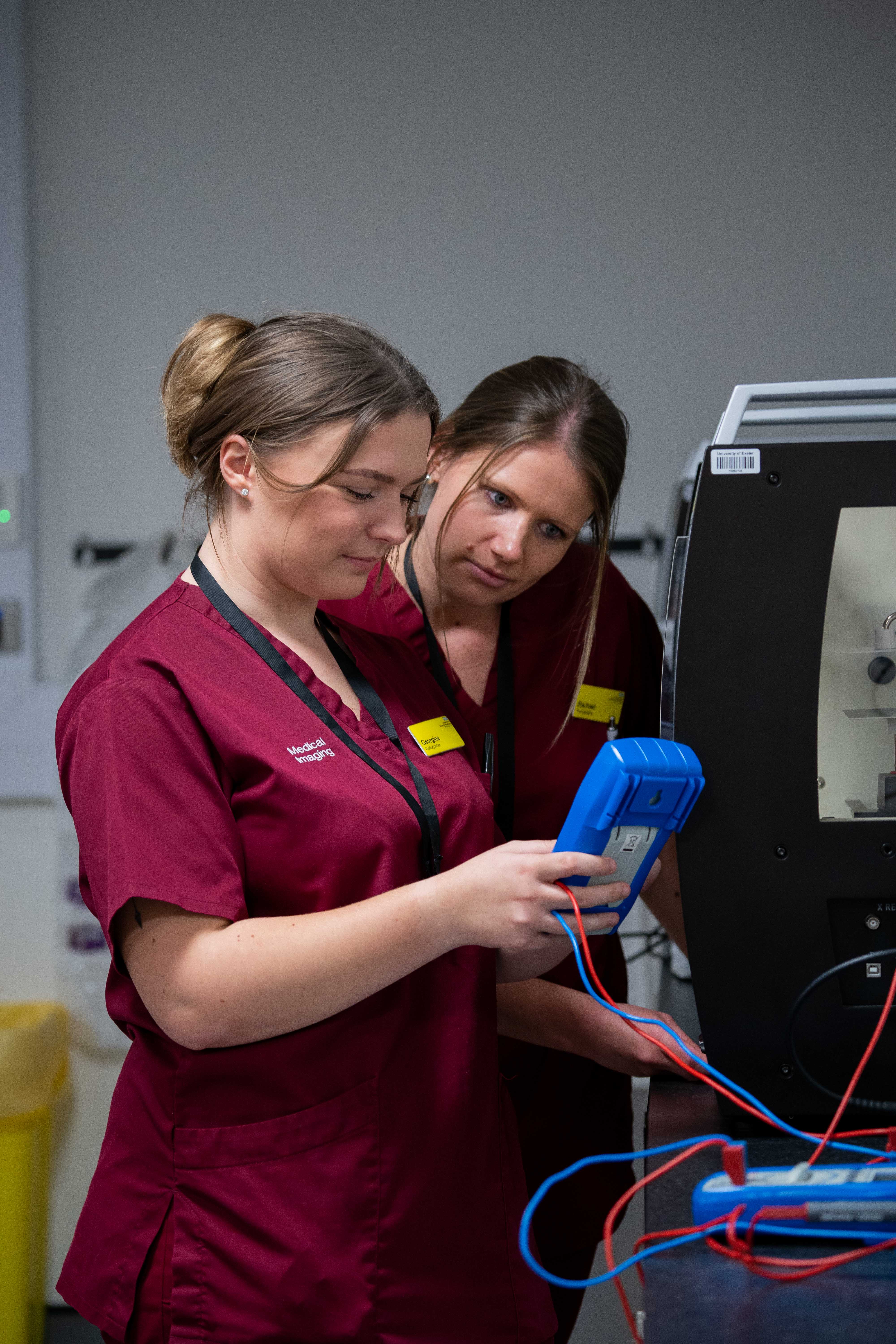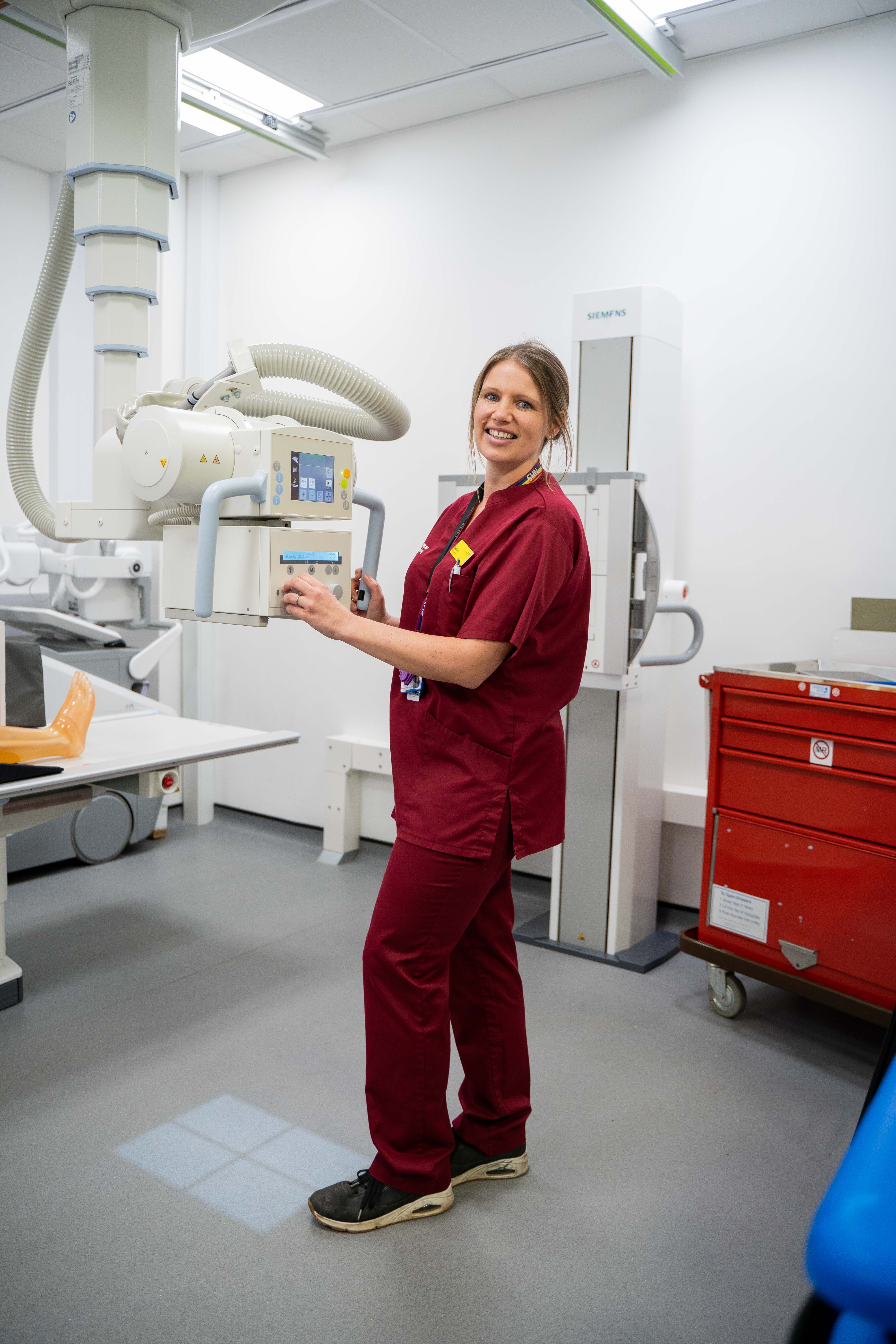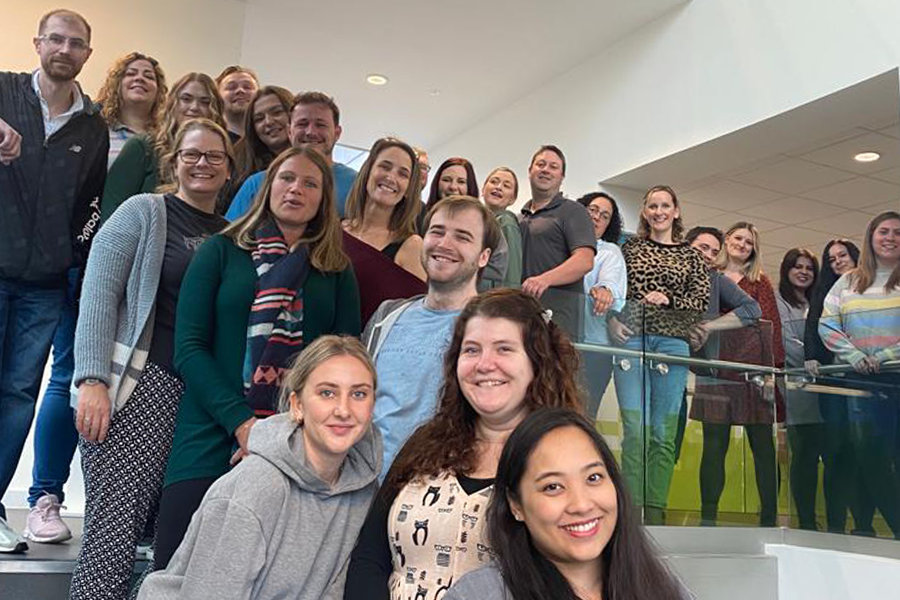Professional
Learning while earning
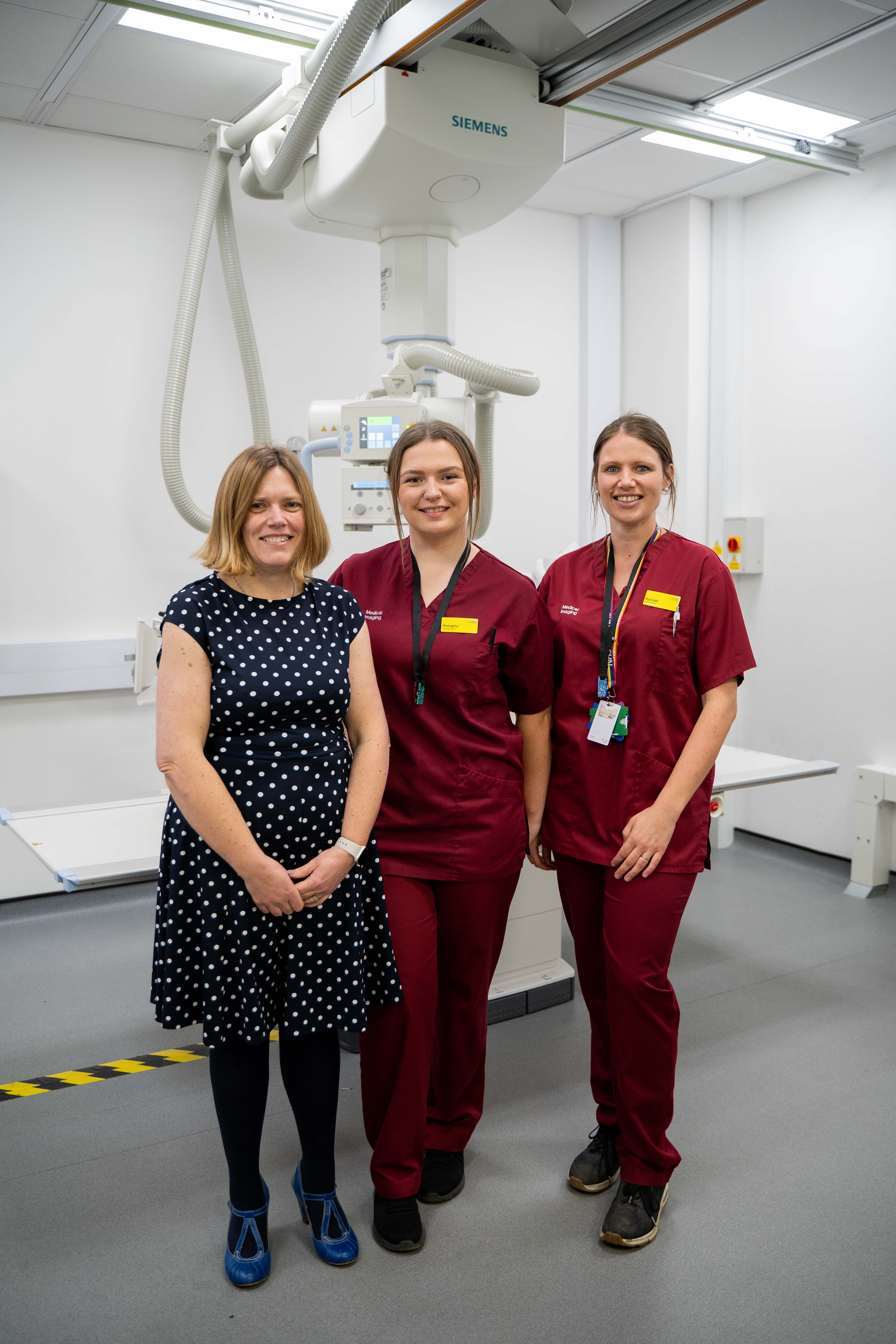
The inaugural cohort of the first three-year apprenticeship degree course in diagnostic radiography has just qualified to work in the NHS, with participants describing the opportunity as “life changing”.
Since those first 27 started at the University of Exeter in 2020, the annual intake has doubled and there are now 218 apprentices in place. Exeter is one of nine universities in England offering a degree apprenticeship in radiography.
“What we have found with apprentices is that they are so motivated,” says Exeter’s director of workplace learning, Demelza Green. “A lot of them thought they would never get the chance to train as a radiographer, so they have fully embraced it. They are really, really engaged in the programme and they have been an absolute pleasure to teach.”
The future did not look so bright when Covid forced the UK to lock down, just a week after the course launched in March 2020. Apprentices are employed by partner hospital trusts, spending a minimum of one day a week learning and the rest of the week in workplace training. In 2020, this meant that while the undergraduate students were sent home from their placements, the degree apprentices continued to work and learn.
Rachael Bradford and Georgina Brimblecombe, degree apprentices at the neighbouring Royal Devon University Healthcare NHS Foundation Trust, found they were the only two learners left in their department.
“We did our first week as a trailblazing cohort and then all the students were called out,” says Rachael. “The decision was made that we would stay, as employees, and also we had previous skills and experience in the NHS that we could be using.”
For Rachael, that included 13 years at the trust as a pharmacy assistant and healthcare assistant, as well as time in the maternity unit.
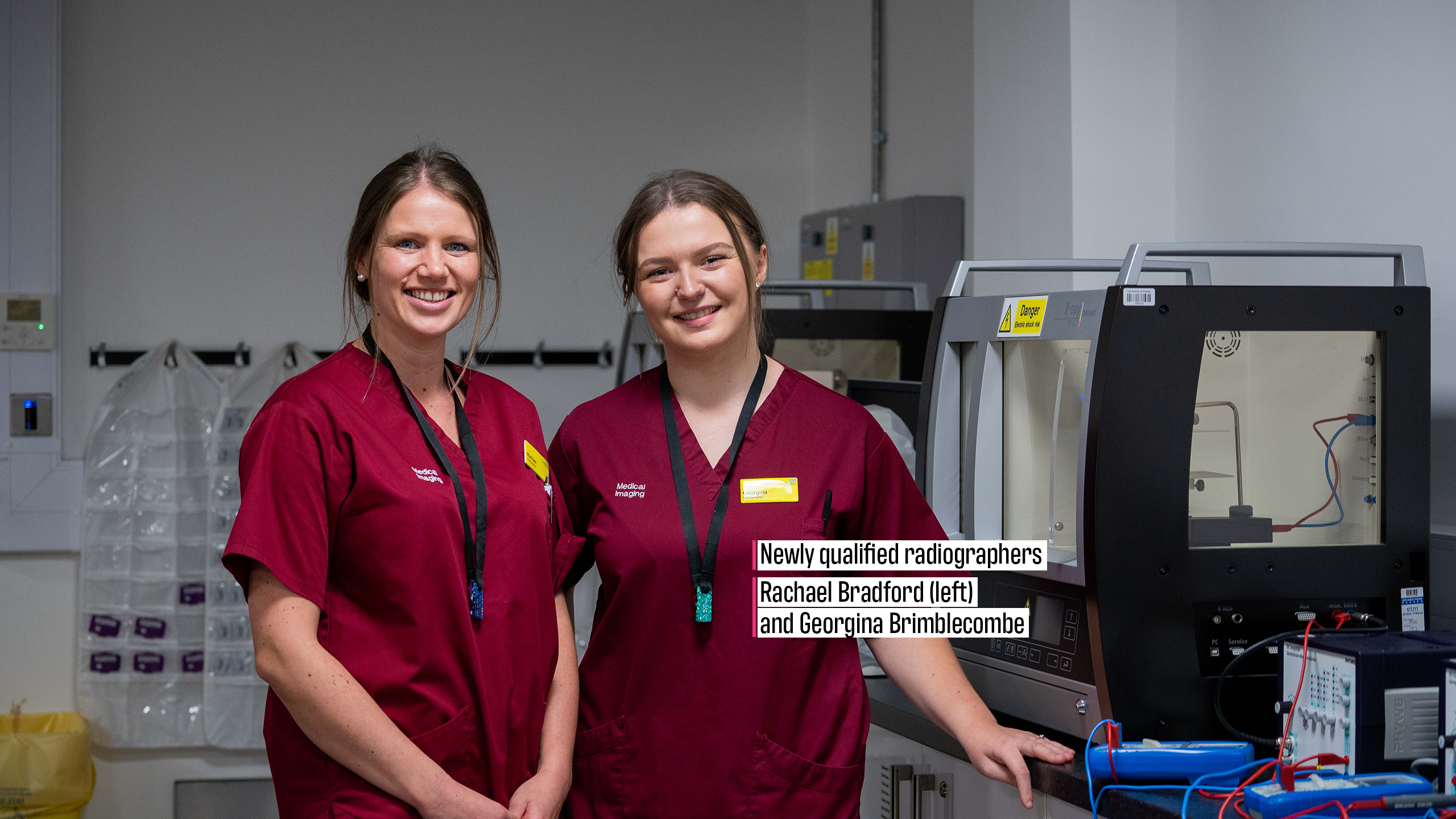
Why a degree apprenticeship?
Rachael and Georgina were radiography assistants before they applied for apprenticeships and they are now both working as Band 5 general radiographers at the Royal Devon.
Rachael’s family commitments meant she did not have the financial ability or logistical flexibility to take on a traditional undergraduate degree course. “It is usually run as a period of campus learning and then a period of placement learning – and those placement sites can change or you move around different areas – so it was just not manageable for me,” she says. “The apprenticeship was a way that I could still learn, work and manage all those other demands on me but still get out with my degree.”
Apprentices on the course are spread across England – and different trusts have different ways of paying the apprentices – but generally most are on Band 3, are then promoted to Band 4 in their final year and qualify as a Band 5. The employer also covers the cost of the apprenticeship, meaning apprentices do not pay for any of the eligible training costs.
Georgina says the combination of being paid and not having to pay university tuition fees was crucial in her ability to study radiography at degree level. “I come from a background where we had enough money to get by but my parents would not have been able to support me along the undergraduate route,” she says. “So I became an assistant in this department just to get my foot in the door and then applied for the apprenticeship. I’ve got a mortgage now and I would never have been able to buy a house as an undergraduate.”
There are similar stories from across the cohort, says Rachael, and all are mature students (see case studies below). “There are single parents, working parents, and people who have been working in NHS departments for 10 or 15 years, who are more than capable of doing the job but the undergraduate route is not suitable for them,” she says.
Not the easy option
While the financial benefits are obvious, and include all the standard terms for NHS employees, the apprentices do not have the long academic holidays enjoyed by undergraduates and it can be a struggle to combine work and study.
Alexandra Evans, one of the cohort based at the University Hospitals of North Midlands NHS Trust, says apprenticeships are not an easy option (see below). “Balancing work, life and university has been extremely challenging,” she says. “Studying for a degree by distance learning meant that self-motivation, determination and dedication have been essential for me to finish the course”.
Ironically, the rapid development of high-quality online learning tools across higher education prompted by Covid-19 meant that the distance learning elements of the course were actually enhanced by the impact of the pandemic.
The apprentices visit the Exeter campus three times a year for an intense week of teaching and, in between, do all of their learning in the workplace and online. They keep in touch via regular webinars and also support each other informally via social media.
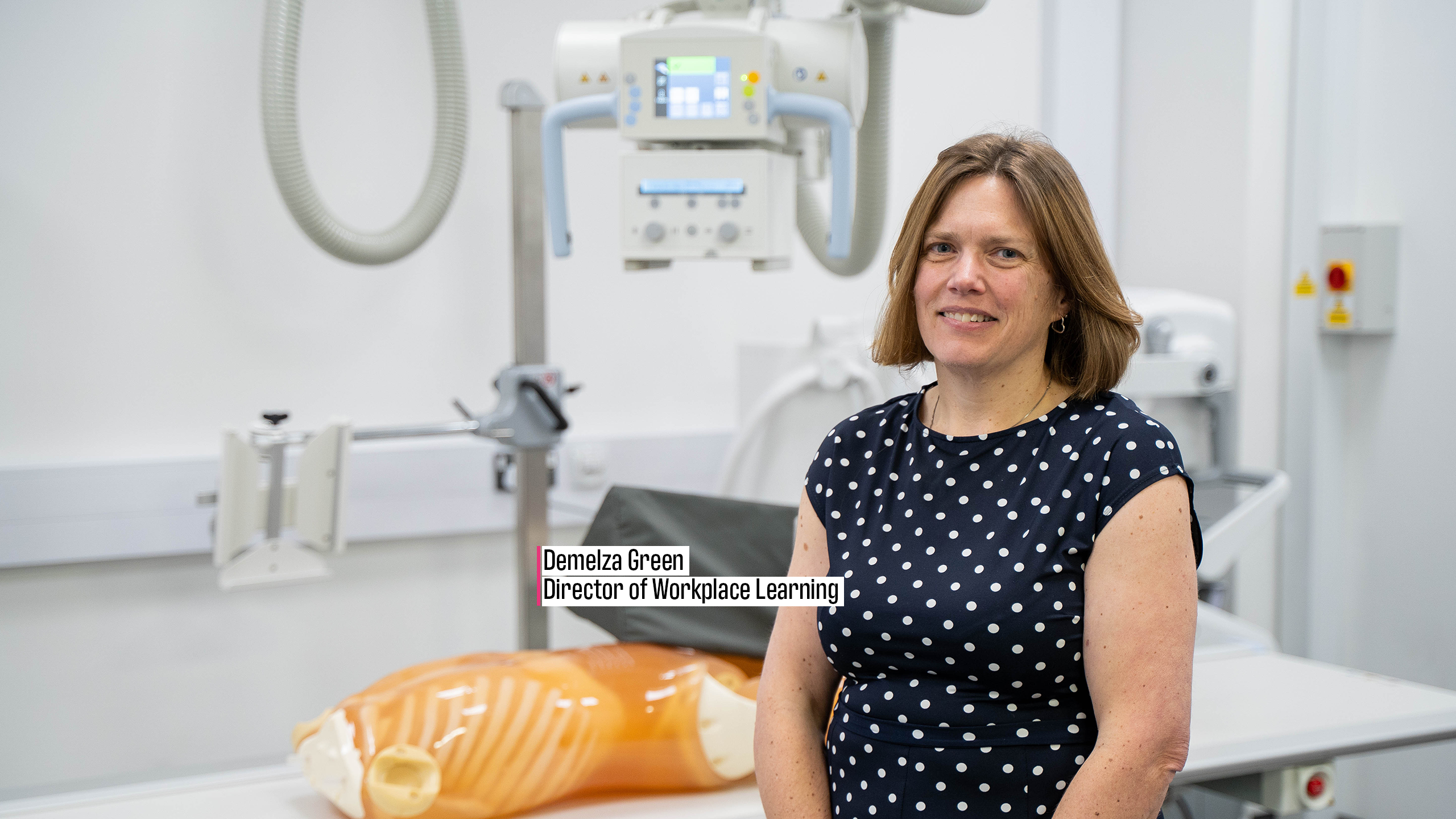
Widening participation
As well as widening participation in higher education by opening it up to different sociological groups, the apprenticeship degree has also enabled the university to build new partnerships.
“We understand that the NHS is short staffed and we want to contribute to workforce development,” says Demelza. “Up until this point, our undergraduates went to 10 local sites but now we are building networks across the country and the university sees it as a way that we can widen participation.”
Demelza says the trusts are crucial to the success of the apprenticeship course. “The employers have played a big role in this. They have had to learn about this new way of training and all the nuances of funding the roles, but have fully embraced it because they see the value in apprenticeships as well as the undergraduate route. We could not have done it without them.”
A fundamental principle of the course is that the apprentices are not “paid to work” but “paid to learn”. It’s telling that in this first cohort, all but one of the graduates have stayed with their employing trust, despite there being no obligation to do so.
Training future colleagues
“We have set up the course so that the apprentices go to different departments across the trust and are not always patient-facing in the workplace,” says Demelza. “For example, they might go to the PACS team and set up a workstation to look at images. This has meant that other departments have completely embraced it from the start. They understand that they are training up their future colleagues and see the need to invest in them now.”
Georgina says: “You build a real rapport with the radiography team. They are colleagues and friends and, when you qualify, you do not have to start from scratch - you are just continuing in your department with your friends and it’s not a massive leap from being a student to a qualified radiographer.”
The degree apprenticeship is clearly an important new route into radiography, opening up the profession to people who would otherwise not have had the opportunity of higher education, and dramatically increasing the capacity of universities to fill vacancies in the profession. But as Demelza says, the academic standards are exactly the same for as the traditional route and it is by no means an easy option.
“We are asking the same question of the apprentices and the undergraduates. They just take different routes to the answer,” she says. “The apprentices can struggle slightly more with the academic work because they have less study time, while undergraduates can struggle a bit with the clinical side because they spend less time in hospital.
“But whichever route they take, they all have to demonstrate that they are at the level to qualify as a Band 5 on the HCPC register.”
Apprentices tell their stories
The first cohort | Image: Cassandra Bednall
The first cohort | Image: Cassandra Bednall
“As a mature student with adult responsibilities, an apprenticeship was the only way that I could study.”
Natalie Furbank
University Hospitals Dorset NHS Foundation Trust
I had always wanted to work in healthcare but had not done the “right” A levels and so continued on a different career path. After an amazing healthcare professional helped me during my sister’s terminal bowel cancer diagnosis, I decided that it wasn't too late to change my career. As a mature student with adult responsibilities, an apprenticeship was the only way that I could study.
In my third year I focused on CT and I aim to work there in the future. I now have a quality improvement project in the pipeline, which expands on my third-year project, relating to patient information leaflets for CT colonography (virtual colonoscopies). I would love to work on developing how imaging can improve bowel cancer outcomes in the future.
I am so proud of this cohort for undertaking this first apprenticeship during a pandemic and for sticking together through the hard times.
“It is a great feeling to be qualified but I still have so much to learn!”
Rebekah Mikail
Royal Cornwall Hospitals NHS Trust
I joined the NHS as a clinical imaging assistant in the early 2000s when darkrooms and processing chemicals were still in use! I love being part of the hospital trust I work for and had expected to stay working as a clinical imaging support worker in MRI until retirement. The apprenticeship has genuinely changed my life. It takes a lot of time, effort and determination but is hugely rewarding.
I have now successfully applied for a CT/X-ray rotational post. It is a great feeling to be qualified but I still have so much to learn! I am really excited about the future. I have a passion for patient-centred care and hope to be involved in QI and research. I have caught the bug for academia and have already started to investigate master’s courses.
“The apprenticeship has brought amazing opportunities.”
Hannah Grocutt
Royal Cornwall Hospitals NHS Trust
Following years of employment as a radiography assistant at Royal Cornwall Hospital, I secured a place on the degree apprenticeship. This enabled me to obtain my degree while earning and bringing up my young child. The apprenticeship has brought amazing opportunities for my future career and has ignited a passion for research. I participated in and won my category in the University of Exeter undergraduate research showcase and have since been selected to present my work at national conferences. My department and the university have been continually supportive of my progression and I recently commenced postgraduate training in sonography, an ambition I did not think would be realised so soon.
“When it became an option, I knew I couldn’t pass up the opportunity.”
Alexandra Evans
University Hospitals of North Midlands NHS Trust
After working as an ultrasound imaging assistant and an assistant practitioner in mammography, I had a great insight into the importance of diagnostic imaging in healthcare. But as a mature student with adult responsibilities, I couldn’t afford to take the traditional undergraduate route into radiography. So when the degree apprenticeship became an option, I knew I couldn’t pass up the opportunity. Not only has it allowed me to develop my knowledge and practical skills but it has enabled me to truly become part of the imaging team, taking full advantage of my colleagues’ knowledge, skills and experience – with the added bonus of earning a wage! I look forward to developing my knowledge and skills further by working as a plain film radiographer at a major trauma centre.
“Now as a qualified radiographer, I can see all the stress and hard work was worthwhile because I get to do a job I love.”
Grace Rogers
Royal Devon University Healthcare NHS Foundation Trust
While working in the admin team in the radiology department, I became fascinated by the role of the radiographer as I could see the impact of this role in a patient’s pathway. Being able to upskill in the department I already loved working in, without needing to move away from home or pay any university fees, was too good an opportunity to miss! Now as a qualified radiographer, I can see all the stress and hard work was worthwhile because I get to do a job I love. Going forwards in my career, I am hoping that I can promote the profession of radiography. I would recommend to anyone thinking about completing a radiography apprenticeship to go for it – it has completely changed my life!
“This route can be difficult but the support is there and the rewards are worth it.”
Christopher Shaw
Royal Cornwall Hospitals NHS Trust
After working as an NHS cleaner, supply assistant, security officer, courier and theatre assistant, a chance conversation in a lift led to me helping out as a clinical imaging assistant. Having already been to university in my younger days, and having a young family at home, pursuing a career in radiography seemed impossible and unaffordable. The apprenticeship route can be difficult – juggling full-time work with study and home life – but the support is there and the rewards are worth it.
I will be working as a diagnostic radiographer in CT and general X-ray, so my first aim is to learn all I can and get up to speed as a dependable member of the team. At some point, I would like to work more with paediatric patients and move into practice education.
“The degree apprenticeship changed everything for me.”
Cassandra Bednall
Torbay and South Devon
NHS Foundation Trust
I have worked in the NHS for more than 20 years (having studied law previously) and eventually I started a substantive post in the radiology department. As a mum of three and someone who had already had funding for higher education, completing a radiography degree seemed logistically impossible. The degree apprenticeship changed everything for me. Part of the apprenticeship allows you to spend 50% of your third year in a different modality/speciality and, for me, it was MRI. This has opened up further opportunities that I am hoping will eventually lead me to my ultimate goal of reporting radiography. I very honestly cannot believe I am now a qualified radiographer and have these opportunities going forward.
“I would love to pursue anything involving teaching or mentorship.”
Nicholas Waterfield
The Dudley Group NHS Foundation Trust
The apprenticeship route into the radiography profession is a fantastic opportunity. It provides an all-encompassing experience, which enables you to put theory into practice and establish excellent working relationships with a wide range of clinical professionals, which will contribute to your development into a well-rounded, newly qualified radiographer. My plan post-graduation is to establish myself as a competent radiographer at my own trust. I would love to pursue anything involving teaching or mentorship roles – imparting my own experiences and knowledge to future radiographers would benefit them and also me in terms of deepening my own understanding of the complexities of medical imaging.
Find out more
Discover more about the University of Exeter's degree apprenticeship in diagnostic radiography (College of Radiographers Approved).
Compare the nine universities providing degree apprenticeships in diagnostic radiography.
Main images credit James Aitken
Now read...



